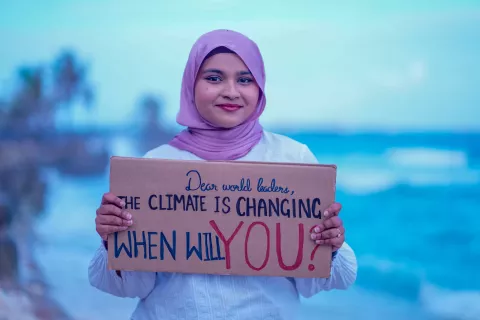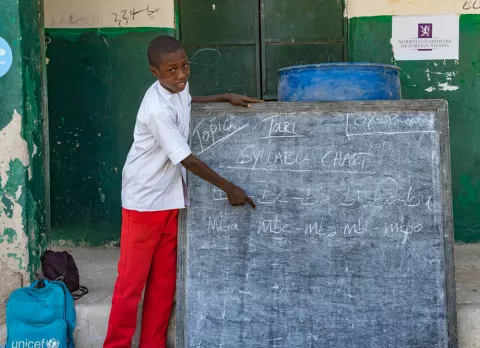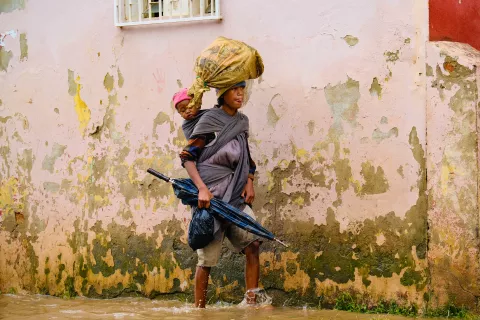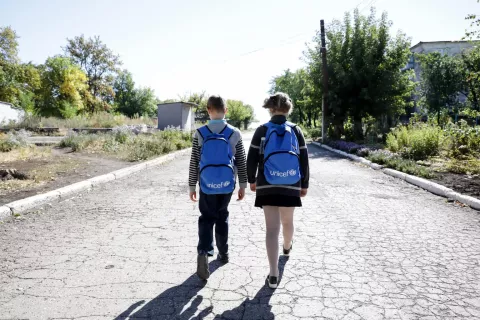Suddenly finding yourself in a new environment with a different culture, not being able to cope with new lessons, failing exams one after the other, and seeking help from drugs.
This was the state my friend found himself in when he called me at 2 a.m., disappointed, empty of hope and his voice trembling; this call was his last step before self-harm.
I was shocked and worried. With loads of adrenalin in my blood, I used everything I had in mind to hear him out and reassure him that he was truly valuable for us and his family, and I managed to save him from an immediate danger. But was it the best possible way? Or were we just lucky?
Just as it happened to my friend, the mental health issues of youth, especially students, does not get enough attention; the issues are not detected on time; and the necessary actions are not taken properly. If you look around, or think back on your days as a student, you will definitely find that friend who needed proper help.
Although my friend’s story is tragic, his 2 a.m. phone call changed his life; it also changed mine. It motivated me to become part of a super talented team of students who organized Beyond Our Thoughts (BOT), a national, student-led campaign that addresses mental health issues, especially depression among university students.
On a cold winter day, the group of friends who formed BOT came together in a room in the basement of our university to make a leap, not a step, towards addressing the mental health issues of students and young people just like my friend. We felt we were not only responsible for helping our peers, but also responsible for increasing mental health awareness and educating university officials so they could take necessary actions. The idea for BOT grew. Our mental health initiative was not only implemented in our university, but working with many others throughout Iran, it also became a national movement aimed at highlighting the mental health issues of youth.
As students, we were committed to combine scientific evidence with the knowledge we had from our peers with lived experience – our friends with late night calls! We wanted to learn ourselves more, share our knowledge and reach out to others who needed help.
Above all, the experience with BOT taught us that youth have the power to make big changes.
Numerous obstacles can get in the way of reaching great goals and BOT was not immune to them. Students encounter stigma towards mental problems; they face extreme pressure to succeed academically; there is a lack of access to professional mental health centres; and there is ‘downward drift’, a cascade of negative events that can damage our mental health drastically.
As students shared some of their concerns with BOT, there were serious challenges that we, youth alone, could not address. There are challenges that decision makers and people in power need to tackle including:
- Equip students, teachers, professors and academic leaders with greater capacity to respond to students who struggle with their mental health
- Integrate psychological first aid into academic curricula
- Make sure to establish more professional mental health centres on university and school campuses
BOT has helped students like my friend to be aware of the threats to their mental well-being and pointed out ways to prevent the risks. As a result of the BOT campaign, my friend is more aware of his mental health condition and is also able to help others, to keep them away from the dangers he experienced. He – and all of us with BOT – know what advocacy efforts need to be taken in order to make significant changes.
My friend’s mental health has improved dramatically, and now he is seeking professional help. But what about your friends and loved ones? Could all of us be that lucky?
About the author:
Ali Amirkafi is a medical student who was born in a desert city in Iran. He is concerned with the mental health of the people around him and tries to help them improve it.
Republished from On My Mind: How adolescents experience and perceive mental health around the world – a companion report to the State of the World's Children 2021.





